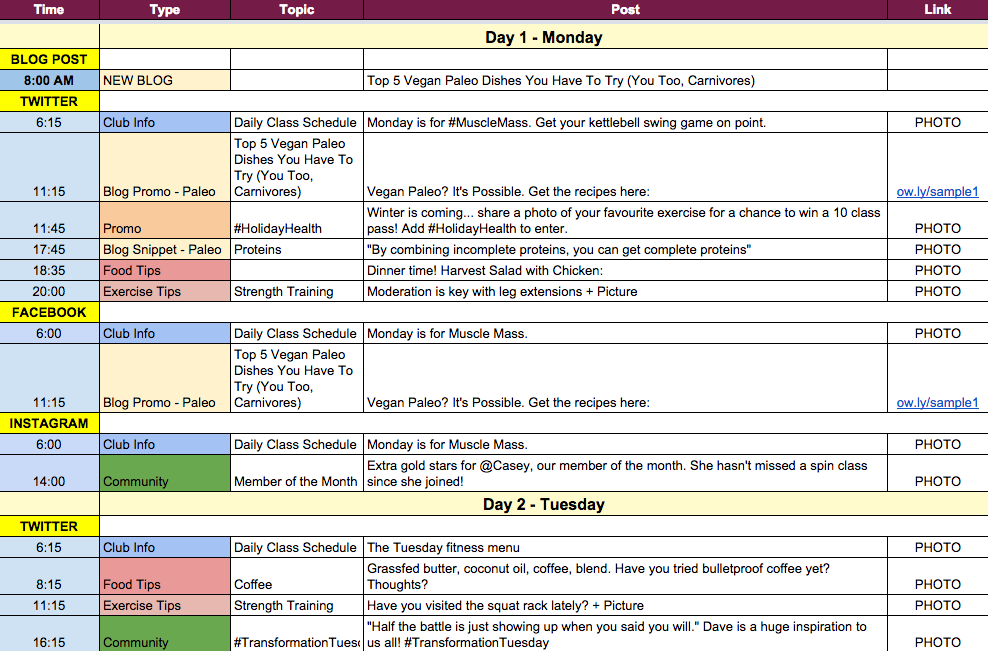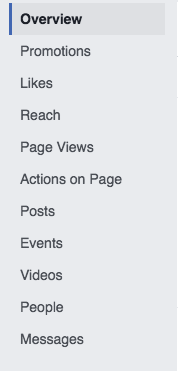
Most small companies do not have a dedicated social media manager. Employees typically have other responsibilities than posting to their company’s social media sites. When taking on a social media role, you quickly realize how easy it is to run out of new and refreshing content so you fall into lazy habits.
If you do not have a goal for social media how will you ever measure success? Begin with the basics. Who is your audience? Does your audience specifically use one social media channel over another? What will be the voice of your posts? How will you position and differentiate your brand on social media? How often do you plan on posting? These are good starting questions and the answers will constantly be referenced when creating social marketing content. Once you have the basics begin thinking about how you will measure success. Is it by increase in followers? Increase in sales? Increase in shared posts? Have an objective and stick with it. Measure your progress week over week.
If you haven’t implemented a weekly calendar to manage each social media channel it is important you begin a basic one. A calendar can be a valuable component to your social strategy. Start with a monthly calendar and

further break it down by week and day. If you have several social media channels you will want to have separate sections for each. If this seems too daunting as a beginner, start small! Start with the next 2 weeks and think about what content is relevant to post, what time of
the day you will post, and what day. Most content can be repeated over the coming weeks so don’t get rid of past calendars. Make sure you have a way to mark the posts that can be repeated in the future.
Every company has been guilty of this once or twice. It is easy to do when you want to share an article or blog quickly. Your go to is to have an expanded post on Facebook and 140 characters on Twitter that read seemingly the same way. Yes, this is the easiest way to post to both Facebook and Twitter in no time at all, but you are also limiting your followers to both social media networks. You have to treat each network uniquely. If you are sharing a blog come up with 1-3 ways to promote the same blog. Rotate these posts throughout the first week of publishing the content.
How do you expect to know what works and what doesn’t work if you are not monitoring your followers on a week to week basis? Start monitoring the followers/likes on your pages and keep a log of the growth week over week. This will give you an idea of what is working and what isn’t working with your social media strategy and content calendar.
Not only is it important to keep track of followers, but engaging with followers is recommended. The most important part of social media is engagement. By monitoring customers/ potential customers mentions about your brand it is a way to leverage your brand and increase sales. Use a social media monitoring tool to keep track of mentions of your company on different channels. Learn more about social media monitoring tools:
6 Social Media Monitoring Tools to Track Your Brand

If you are a company investing time into social media, than you should use social media analytics to track yourprogress. It is important to know what is engaging to your followers and what isn’t. By knowing what works, you can begin creating more targeted posts.
Monitoring your website’s google analytics is a good starting point and imperative to your social media’s success. Also, Facebook has a great analytics tool, “Insights”, that is easy to use for beginners! Facebook Insights breaks posts down by likes, reach, page views, etc. You can break down the results by today, yesterday, 7 days or a month.
Do you have suggestions to keep from falling into lazy habits with social media? We would love to hear them! If you would like help with your social media strategy, let us help! Contact Us Today.